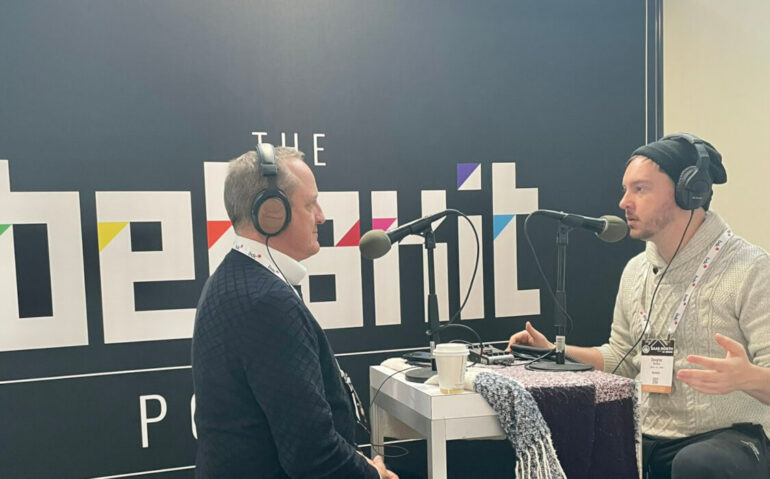To thrive in technology these days, entrepreneurs need to keep their eye on the long game, not just surround themselves with “yes people,” according to Coveo CEO Louis Têtu.
Têtu delivered these messages and more recently at the SAAS NORTH conference, with a good sprinkling of bon mots in between.
Here’s Têtu on smart capital. “Allow me to say the words, smart capital is an oxymoron. It’s like jumbo shrimp. It doesn’t exist. Capital is not smart. Entrepreneurs are smart. They’re the ones building the business and so on. Capital is an instrument to invest and build business.”
“Smart capital is an oxymoron. It’s like jumbo shrimp. It doesn’t exist.”
– Louis Tétu
Têtu knows a thing or two about the latter. The CEO of the AI-powered e-commerce company, Coveo, Têtu took it public on the TSX in 2021, raising $215 million at a time when other companies attempting IPOs were floundering. Since then, Coveo has continued to beat analyst expectations for four straight quarters.
In an interview with BetaKit editor-in-chief Douglas Soltys, Tėtu said that reading about startups over the last five years gives him the impression that many of them look at going public as an achievement. Têtu called an IPO a milestone, or simply another financing event.
“It’s not an exit,” he said. “It’s not a destination. I always think in life in general the journey is better than the destination. So focus on the journey. Generally, when you focus on the journey the destinations tend to get better. This is really a philosophy of longer-term thinking.”
How Coveo successfully raised its IPO wasn’t a magic trick; it came from paying attention to the fundamentals of the business, such as how you pick your board of directors. “A lot of it has to do with the governance,” Têtu said. ”The kind of board you assemble needs to be diverse, experienced, and thoughtful.”
By diverse, Têtu said he means contrarians who think differently, bring value from the experience of having seen long-term cycles, and can challenge management on fundamental assumptions. “You need a management team and management philosophy that builds a long-term view of how markets will unfold,” he said.
To do that, Têtu noted that it is “a personal choice to have the desire to become the dumbest person in the room.”
“There are a lot of advantages to that,” he pointed out. “When you’re the dumbest person in the room, you can learn, you’ve got a lot of people who will challenge you, you’re going to evolve.”
Têtu concluded by laying out the opposite scenario and its impact on the business: “If you put together a board of yes people, who have no experience in your space, who have not done it before, and will just come to the board to listen to you and tell you you’re a genius, in my opinion, that’s a recipe for failure.”
In the full audio interview above, Têtu speaks to cycles of capital, the fundamentals of scale, market economics and investing, and the all-encompassing importance of artificial intelligence in today’s businesses.


